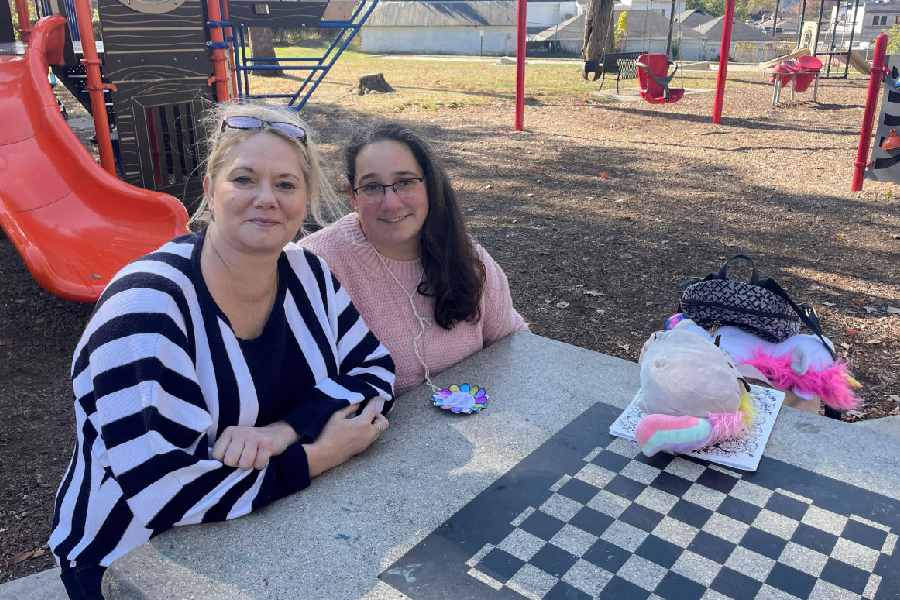In the American ideal, elections are moments of patriotism, a time for citizens to settle their differences at the ballot box, no matter how fiery the disagreements.
In the reality of 2024, ballot boxes are, in some places, literally burning.
So it goes in an election that has been darker than any in recent memory. The nation enters this Election Day on edge over possibilities that once seemed unimaginable in 21st-century America: political violence, assassination attempts and vows of retribution against opponents.
For many voters, the anxiety that pervaded the last election, a socially distanced race that happened amid the coronavirus outbreak, has morphed into a far grimmer feeling of foreboding.
In dozens of interviews over the final weekend of the campaign, Americans from across the political spectrum reported heading to the polls in battleground states with a sense that their nation was coming undone. While some expressed relief that the long election season was finally nearing an end, it was hard to escape the undercurrent of uneasiness about Election Day and what might follow afterwards.
Those worries reflect the fears of a country that has undergone a tumultuous four years, transformed by a devastating pandemic that killed more than one million Americans, a shocking siege on the nation’s Capitol that upended the nation’s bedrock tradition of a peaceful transition of power, the fall of a nearly half-century-old federal right to abortion and a surge in prices unseen for decades. Across the country, cities have felt the strain of the migrant crisis at the southern border.
The presidential candidates themselves have framed the election as an existential battle for the nation’s character, its democracy and the safety of its residents. In their ads and at events, Democrats recount the graphic stories of women who almost died as a result of restrictive abortion bans. As they campaign, Republicans describe brutal crimes by foreign gang members in the country illegally, telling Americans they could be the next victim.
Many voters expressed concerns about post-election violence. “I worry about violence,” said Bill Knapp, 70, a retiree from Grand Rapids, Michigan, faulting Trump for that possibility as he mingled with other supporters of Vice-President Kamala Harris at a local Democratic campaign office on Saturday. “I’m bracing for that no matter what the outcome is.”
At an early voting site in Madison, Wisconsin, Chris Glad, 62, was suffering from election fatigue. “I’ll be so glad when it’s over — I think,” she said as she helped her mother into her car.
And as Cathy Hearn, a factory worker from Lansdale, Pennsylvania, waited for a campaign event for former President Donald J. Trump to begin in a suburban Philadelphia parking lot, she offered a four-word prayer: “God is in control.”
The final weeks of the race have been interlaced with notes of genuine violence.
The FBI is investigating arson attacks last week of two ballot boxes, where incendiary devices marked with the message “Free Gaza” were found. Schools in Allentown, Pennsylvania, closed “out of an abundance of caution” when Trump held a rally there. In San Marcos, Texas, the police investigated reports of threatening fliers attached to Harris campaign signs, signed “Trump Klan”. And in Florida, outside an early voting site, an 18-year-old man supporting Trump brandished a machete at two older women backing Harris. By Sunday, it felt as if the entire nation was girding for impact. Of what, exactly, no one seemed quite sure.
In Omaha, during a church service at the Lord of Hosts, Hank Kunneman, a pastor who has been an outspoken supporter of Trump, predicted “payback time” for “a lying party” of Democrats.
In Washington, several restaurants near the White House covered their front windows with thick plywood.
And in Rocky Mount, North Carolina, Vernon Battle, 67, cast his vote for Harris and said someone recently suggested that he get a gun
to prepare for what might come.
The riot at the Capitol, said the gas station employee, “really just changed things”. His wife, Carolyn, added: “People aren’t what they used to be.”
Seeking parallels for this moment in American political life, historians have reached back to some of the darkest days of the nation, frequently citing the Civil War and the upheaval of the 1960s. But even those times don’t quite share the mix of deep distrust in elections, conspiratorial thinking and vitriolic language of this campaign, said Douglas Brinkley, a presidential historian at Rice University.
“We’re having to just trust in our legal system and say at the end of the day: It will be OK — don’t listen to all the noise, your vote counts,” he said.
“Everybody is queasy and anxious and fearful about what’s happening on election night. ”
Republicans say they are worried about instability abroad, illegal immigration and election security. Many continue to believe Trump’s false claims that the 2020 election was stolen and expect a repeat.
In recent weeks, the former President has been laying the groundwork to again claim that there was large-scale voter fraud if he loses.
New York Times News Service











